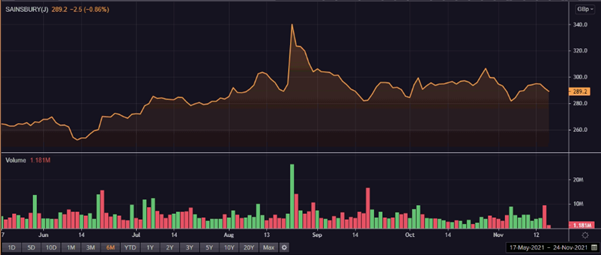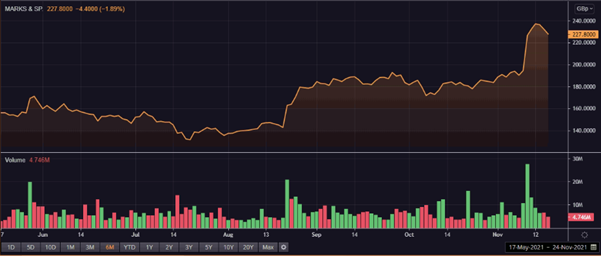Highlights
- Lidl GB became the highest paying supermarket, after stating its plans to increase its staff wages from £10.85 to £11.35 in London, and from £9.50 to £10.10 for workers outside of London.
- The hike is expected to benefit 21,000 workers, and as Lidl plans to expand from 860 to 1,000 branches by the end of 2023
- The move comes amidst a huge hiring drive by all supermarkets ahead of the festive season.
Discount grocery retailer Lidl GB became the highest-paying supermarket in the UK, as part of Lidl GB’s goal to attract new workers and recognise its staff’s efforts.
The supermarket’s hourly wage will rise from £10.85 to £11.35, within M25. Whereas wages are set to rise to £10.10, up from £9.50 outside of London. The changes are expected to come into force from March next year.
The wage hike is expected to help about 21,000 of its workers. It also comes as Lidl plans to increase its store count to 1,000 by the end of 2023, from its current 860 stores.
The move also comes amidst a huge hiring drive for temporary workers by all supermarket chains in the UK during the festive season.
In view of this, let us take a look at 2 FTSE listed supermarket stocks and how they are coping up with supply chain constraints and wage hikes:
- J Sainsbury PLC (LON: SBRY)
Sainsbury is the second-largest supermarket chain in the UK.
The group’s Sainsbury and Argos workers are paid £9.50 per hour. Whereas employees located in London’s Zones 1 and 2 are paid an hourly rate of £10.10.
The company recently reported its H1 2021/2022 results for the 28 weeks period ending 18 September. Its H1 2021/2022 group revenue rose by 5.3 per cent to £15,724 million, from £14,934 million in H1 2020/2021.
The group returned to profit in H1 2021/2022, reporting a profit before tax of £541 million, compared to a loss before tax of £137 million in H1 2020/2021.
Its improved performance was due to gaining market share in the sector, driven by innovation, more customers eating at home amid lockdowns and other factors.

(Image source: Refinitiv)
Sainsbury’s shares closed at GBX 288.00, down by 1.23 per cent on 17 November. The company’s market cap was at £6,804.06 million, and its one-year return is at 37.63 per cent as of Wednesday.
- Marks and Spencer Group PLC (LON: MKS)
FTSE 250 index listed Marks and Spencer is a multinational retailer and supermarket chain.
The group’s hourly wage for all of its UK permanent staff is at least £9.50. The wages jump to £10.75 for workers based in greater London and to £10.95 for those located in central London.
Its profit before tax, for the 26 weeks period ended on 2 October, stood at £187.3 million, up from £158.8 million in the year-ago period in 2019/2020.
The improvement was due to a covid-19 bounce back.

(Image source: Refinitiv)
Marks and Spencer’s shares were trading at GBX 227.70 on 17 November. The company’s market cap was at £4,547.35 million, and its one-year return is at 79.96 per cent as of Wednesday.
Other supermarkets’ staff wages as of November:
- Aldi: Its UK store workers, based outside of London, have an hourly wage of £9.55. While those in London are paid about £11.07 per hour.
- Asda: The supermarket chain’s wage rates are £9.36 to £9.95, dependent on its store location. While its London staff get paid about £10.51 per hour.
- Morrisons: It is the 4th largest supermarket in the UK. It offers a minimum hourly rate of £10 for its staff.
- Tesco (LON:TSCO): The supermarket giant’s store and customer fulfilment centre workers are paid an hourly rate of about £9.55.




